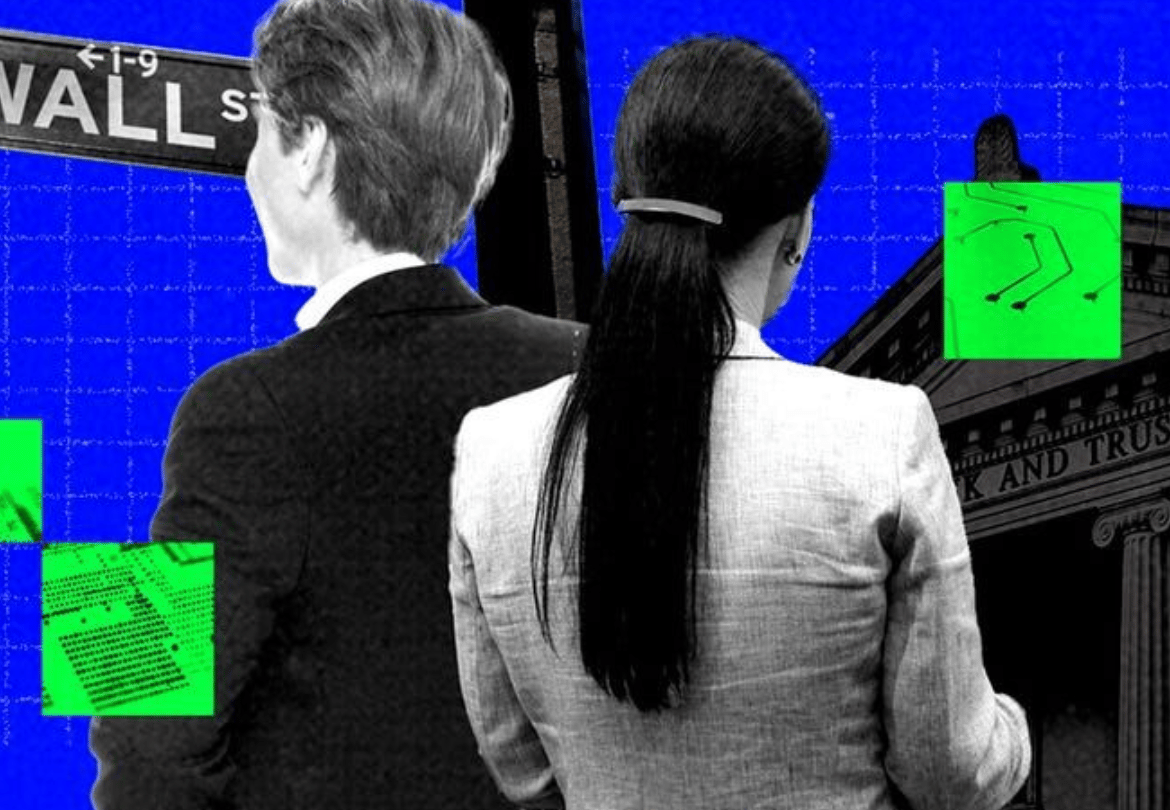Dear Readers,
Have you noticed how quiet the job market has become in recent weeks? Not because there is less work to be done, but because more and more work is being done by algorithms. CEOs now openly boast that their teams are shrinking while AI systems tirelessly analyze, plan, and execute in the background. The revolution is quiet but unstoppable – and it is changing the way we think about work, security, and opportunities.
In this issue, we take a deep dive into the tectonic shifts that AI is triggering in the labor market, the economy, and the financial markets. You'll read why consulting giants like McKinsey are now relying on thousands of AI agents, how Trump tariffs are putting pressure on tech giants like Apple, and why Wall Street is pouring billions into AI-powered investment strategies. If you want to understand which jobs, industries, and markets will be next to be swept up in the AI wave, keep reading.
In Today’s Issue:
CEOs bragging about replacing their workforce with AI
A new AI is generating stunningly realistic anime art
A new open-source AI is already outperforming OpenAI's o3-mini
Top AI researchers are turning down massive paydays to stay at OpenAI
And more AI goodness…
All the best,

The silent revolution: How AI is driving people into unemployment
"CEOs are now bragging about shrinking their companies' staff, highlighting a cooling job market and an unwavering commitment to automation at all costs"
— Futurism
The Takeaway
👉 AI leads directly to massive job losses: In July alone, over 10,000 jobs in the US were directly replaced by AI.
👉 Administrative and analyst jobs particularly at risk: AI automates standardized and analytical tasks on a large scale.
👉 Consulting firms are severely affected: McKinsey now employs 12,000 AI agents, which has led to significant job cuts.
👉 Consider the global dimension: Experts predict that up to 300 million jobs worldwide are at risk, which will mean massive social upheaval.
AI is already eliminating thousands of jobs every month—without much fanfare, but with a noticeable impact. According to a recent study by Challenger, Gray & Christmas, over 10,000 jobs were lost in the US in July alone as a direct result of the use of generative AI. This makes artificial intelligence one of the top five reasons for job losses. The trend is increasingly affecting jobs that were previously considered secure, such as administrative and analytical tasks in companies.

“Verizon CEO Hans Vestberg told investors last week that the telecom had been "very, very good" on headcount, meaning that "it's going down all the time," as quoted by the WSJ.”
— Futurism
The change is also evident at large consulting firms such as McKinsey, where around 12,000 AI agents are now replacing complex analytical tasks that used to require extensive teams. The result is clear: efficiency is increasing rapidly, while at the same time workers are being laid off, especially in junior and analyst positions. Experts' forecasts paint a dramatic picture: according to Goldman Sachs, up to 300 million jobs worldwide could disappear as a result of AI in the coming years.

The AI revolution is thus forcing companies and employees alike to fundamentally rethink their approach: Jobs that require creativity, empathy, and strategic thinking seem more secure—but the majority of traditional office and administrative jobs are in serious jeopardy.
But is AI really just a threat—or could it even open up new, more rewarding jobs in the long term? It is up to us to actively shape this change and turn the AI challenge into an opportunity.
Why it matters: Because AI is already displacing jobs on a massive scale, transforming entire professions and changing people's careers. Only those who act now, continue their education, and adapt will remain viable in the future.
Sources:
Ad
Learn from this investor’s $100m mistake
In 2010, a Grammy-winning artist passed on investing $200K in an emerging real estate disruptor. That stake could be worth $100+ million today.
One year later, another real estate disruptor, Zillow, went public. This time, everyday investors had regrets, missing pre-IPO gains.
Now, a new real estate innovator, Pacaso – founded by a former Zillow exec – is disrupting a $1.3T market. And unlike the others, you can invest in Pacaso as a private company.
Pacaso’s co-ownership model has generated $1B+ in luxury home sales and service fees, earned $110M+ in gross profits to date, and received backing from the same VCs behind Uber, Venmo, and eBay. They even reserved the Nasdaq ticker PCSO.
Paid advertisement for Pacaso’s Regulation A offering. Read the offering circular at invest.pacaso.com. Reserving a ticker symbol is not a guarantee that the company will go public. Listing on the NASDAQ is subject to approvals.
In The News
XBai o4 Beats o3-mini
MetaStone AI has released XBai o4, a new 4th-generation open-source model that leverages parallel test-time scaling to fully outperform OpenAI's o3-mini in its medium mode.
AGI Mission Trumps Big Offers
Despite aggressive recruiting attempts by Mark Zuckerberg, most targeted OpenAI researchers have reportedly turned down offers from Meta, convinced that OpenAI remains the company closest to achieving Artificial General Intelligence.
Graph of the Day
CapEx for data center investments will soon exceed investments in the construction of new office buildings.

Apple loses out due to Trump tariffs – AI to compensate
Apple expects to lose around $1.1 billion this quarter due to the new US import tariffs. CEO Tim Cook is fully committed to AI expansion (App Store, AI services) to compensate for margin losses. This shows that tariffs are hitting established tech players hard, but at the same time forcing them to accelerate innovation. Investors, economists, and decision-makers should view AI investments as a strategic counterweight to protectionist risks.
Switzerland under pressure: 39% US tariffs threaten export economy
The announcement of 39% tariffs on Swiss exports, well above the EU average, has led to sharp share price losses for Roche, Richemont, and UBS. According to forecasts, recessions in the export economy are looming, with GDP falling by 0.3–1%. The Swiss National Bank could be preparing interest rate cuts. This is a prime example of structural market shifts: protectionist tariffs trigger capital movements, exchange rate effects, and monetary policy responses.
Wall Street is betting big on AI transformation in banks and asset managers
Leading institutions such as JPMorgan, Goldman Sachs, BlackRock, and hedge funds such as AQR are expanding dramatically in AI applications for investment strategies, deal sourcing, risk modeling, and customer management—thousands of employees are using AI assistants. This marks a turning point: banks are saving significant costs, optimizing research processes, and increasing efficiency. For markets, this means pressure on margins in junior-heavy activities and growth potential for AI-enabled business models.

Get Your AI & Finance Research in Front of 200,000+ People
Working on the future of finance through AI? From trading algorithms to credit modeling and fintech infrastructure, we’re looking for work that explores the intersection of AI and financial systems.
Submit your paper or project to Superintelligence, the top AI newsletter with 200k+ readers, by emailing [email protected] with the subject line “Finance Submission”. We’ll contact you if we’d like to feature it.
Question of the Day
Are you afraid that AI could take your job?
Tweet of the Day
Rumours, Leaks, and Dustups
Did Sam Altman himself send the first real sign of life from GPT-5?
And another post from Sam Altman that hints at big things to come: GPT-5 will usher in the “fashion era of SaaS.”
Ad
Turn AI Into Your Income Stream
The AI economy is booming, and smart entrepreneurs are already profiting. Subscribe to Mindstream and get instant access to 200+ proven strategies to monetize AI tools like ChatGPT, Midjourney, and more. From content creation to automation services, discover actionable ways to build your AI-powered income. No coding required, just practical strategies that work.










